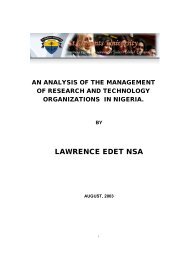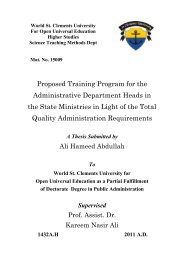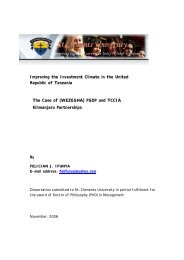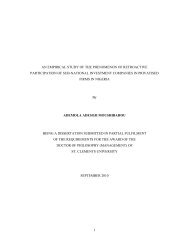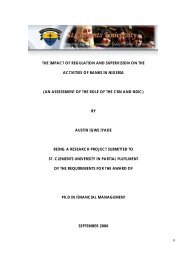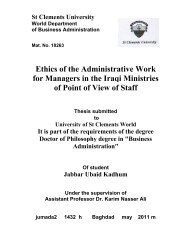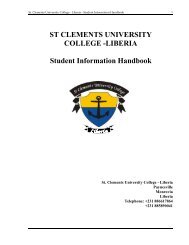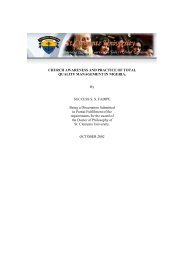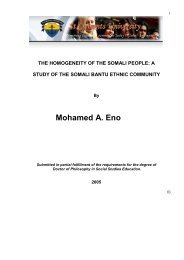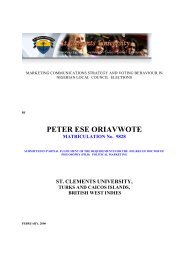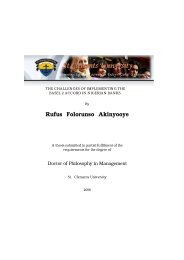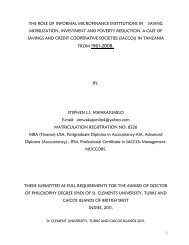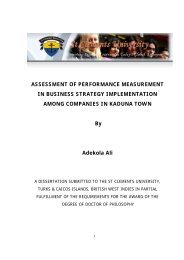x xf xf xf xfxf x - St Clements University
x xf xf xf xfxf x - St Clements University
x xf xf xf xfxf x - St Clements University
Create successful ePaper yourself
Turn your PDF publications into a flip-book with our unique Google optimized e-Paper software.
� The abusing family is often isolated from neighbours and extended family. Family<br />
members have few, if any, friends. They have no one, therefore, to whom to turn<br />
in times of stress. The abuse, of course, makes family members feel different and<br />
secretive, which heightens the sense of isolation.<br />
� The abusing family tends to be a family where independence is sacrificed for the<br />
sake of togetherness. Family members long for closeness but are afraid they might<br />
lose their sense of identity and feel swallowed up in a family that has no room for<br />
individuals. Enormous hunger for love and care is present, brought by each parent<br />
from a depriving background.<br />
� This results in constant competition between the marriage partners to see who is<br />
taken care of. The loser, then, in a desperate attempt to have needs met, turns to<br />
the child. When the child is unable to meet these inappropriate demands, a whole<br />
lifetime of the parent's frustration over unmet needs is acted out on the child in the<br />
form of overt aggression. Immature or insecure parents usually struggle with<br />
everyday problems. One distinctive feature of abusive families is that they are<br />
continually trying to adjust to changes. We know something of the stress and<br />
pressure the average family is confronted with each day: money problems, work-<br />
related stresses, family relational problems, and the pressure of just getting it all<br />
done. At times of change-be it a job change, new family member, or sickness or<br />
death of a family member -life-altering stresses are added to the everyday<br />
pressures. Each, family develops its own way of handling stress and conflict.<br />
Some people cry, others withdraw, some work hard, others get depressed, some<br />
turn to alcohol to escape, while others problem-solve. Some, of course, release the<br />
tension and frustration by assaulting a family member.<br />
Apparently, child battering is an ineffective and destructive attempt to handle conflict and<br />
stress. The beater has not learned to cope with feelings in a productive way but has<br />
learned to strike out at a family member. This behaviour diverts the anger to an<br />
inappropriate target and releases it. In that sense, it works. However, damage is done and<br />
the long-term cost is high. Abusive episodes typically go through a three-phase cycle:<br />
45



